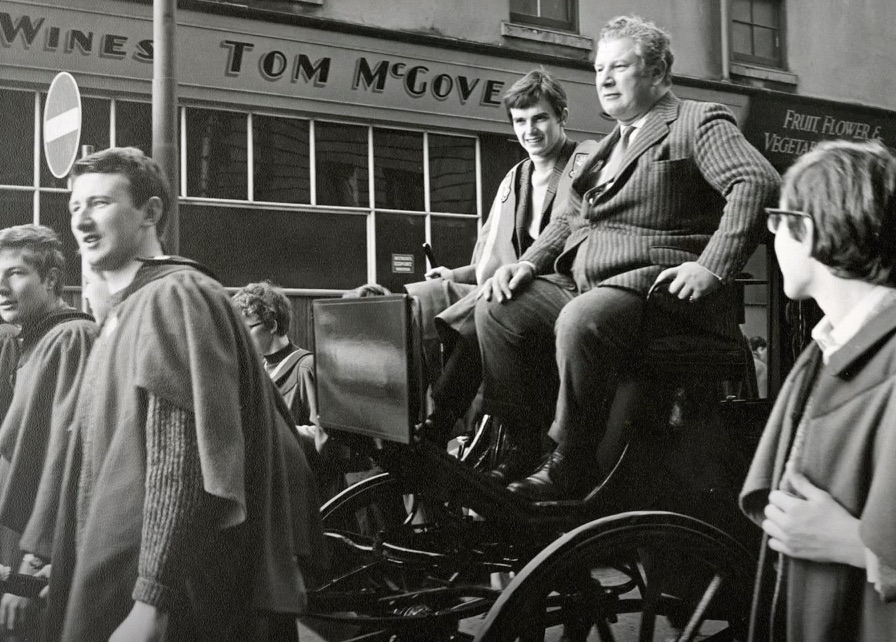A call has gone out to all students for nominations for a new Rector for the University of Dundee, find out more here. Rectors represent students’ interests and are a voice for them on University Court. The role of Rector is very important in assisting communication between the University, DUSA and students. Read more to find out about the role and history of Rectors at the University, with thanks to the University Archives.
The University of Dundee is the only non-ancient university in Scotland to have a Rector. This is largely due to the fact that, until 1967, it was part of the University of St Andrews and when it became an independent university it kept the position of Rector. Dundee students had always had a say in who would be Rector and in 1919 there was concern that the fact there were more students in Dundee than in St Andrews meant that a block vote from Dundee could dictate the choice of Rector.
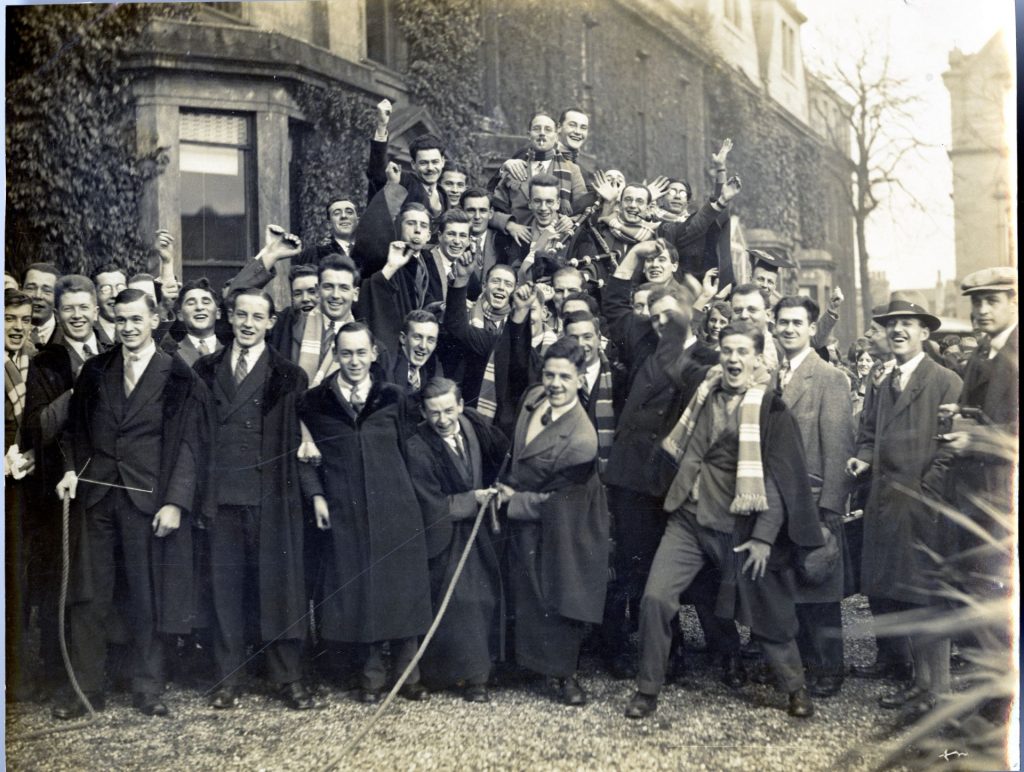
Rectors are voted for by the student body and serve for a period of three years although they can be re-elected.
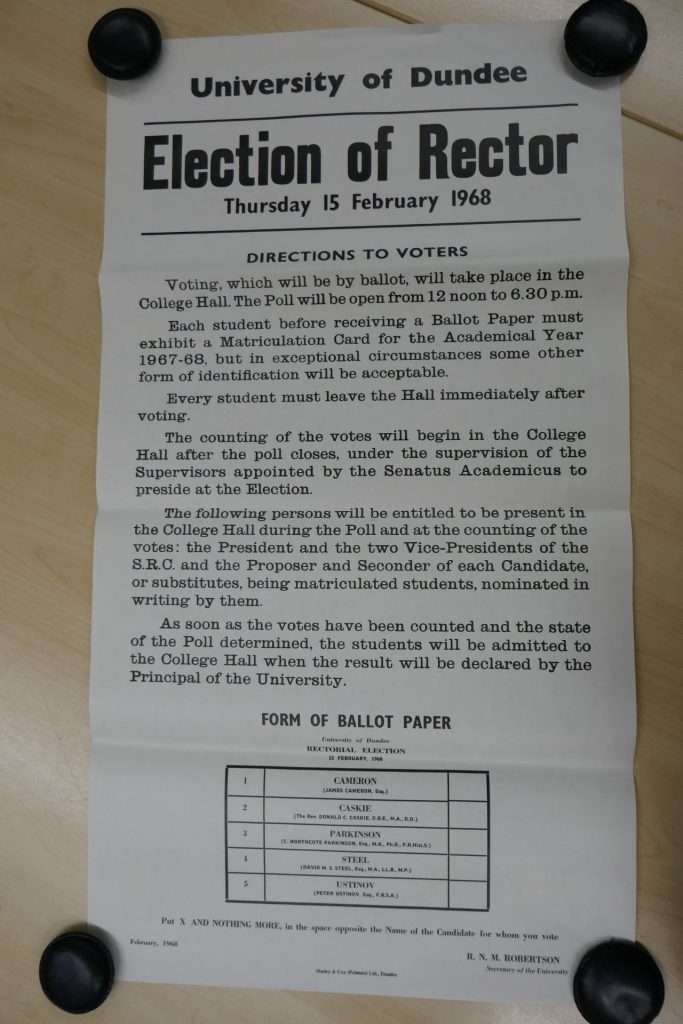
The first rectorial election for the new University was held in 1968 and featured five candidates, a total that has yet to be equalled, in fact more recent elections have seen candidates elected unopposed (1995, 2013, 2016, 2019). For the early elections the candidate who got the most votes was declared elected, regardless of the percentage of the total number of votes they had won. This meant that in 1968 Peter Ustinov was elected with just 32% of the total poll. When he was re-elected in 1971 he secured a 46% share of the vote. From 1977 a single transferable vote system was used.
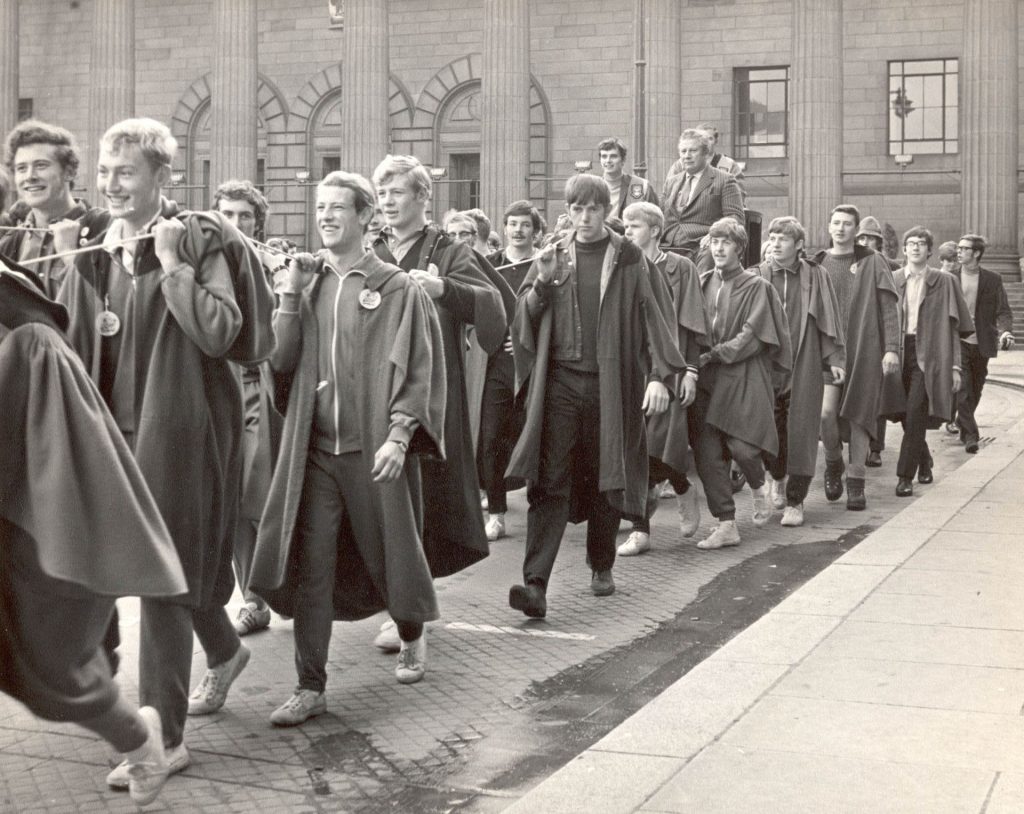
To celebrate the election students ‘drag’ the new Rector around town and the University has a carriage which has been used on some of these occasions.
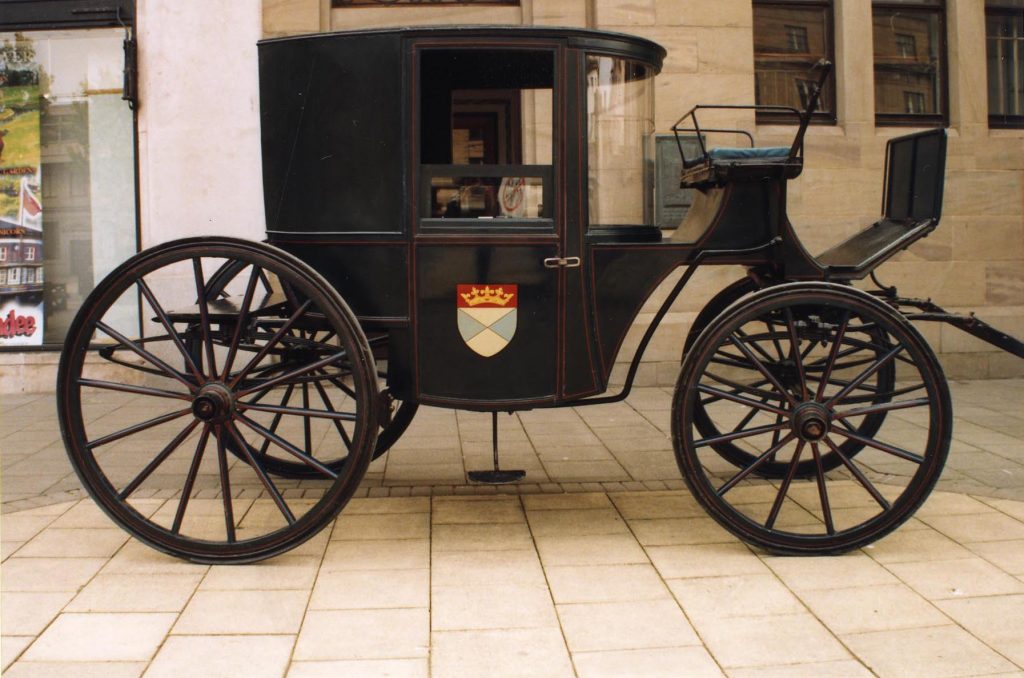
There have been some interesting potential candidates. In 2001 an attempt was made to nominate former Knightrider and Baywatch star David Hasselhoff as a candidate for Rector. However in the end he opted not to stand for the post citing concerns that his work load would preclude him from being able to fulfil the duties associated with the office. Not all potential rectors have been humans. In 1971 a goat named Mervyn was proposed as a candidate for rector. The returning officer rejected this nomination on the grounds that it could not be proven that Mervyn had willingly signed his nomination paper. The result of the election was very close and a second ballot was instigated, this time Mervyn was allowed to stand. In the end Peter Ustinov won the second poll comfortably. Mervyn polled more votes than the journalist Paul Foot and thus finished third, but history does not record his views on this achievement. The Times Higher Education reported in 2001 that a rat named Twinkle had been nominated for the position, but rejected on the grounds it had not signed its nomination papers. On another occasion an attempt was allegedly made to nominate the cartoon character Betty Boop.
Malcolm Bruce (1986-1989) was the first rector to have been educated at the University, albeit when it was still Queen’s College, Dundee. As a student at the time when the University of Dundee’s charter was being drawn up he campaigned for it to follow the ancient University model and have a Rector. Fred MacAulay (2001-2004) was the first rector to be a graduate of the University of Dundee.
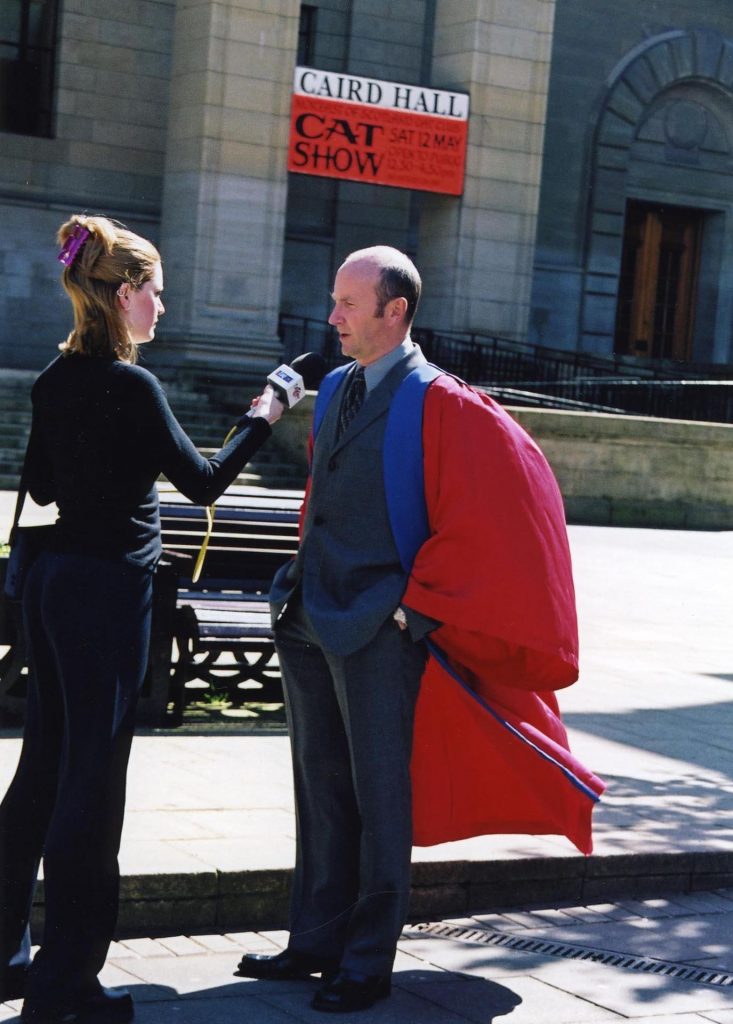
Craig Murray (2007-2010) was the second and also holds the distinction of being the only Rector to have previously been President of Dundee University Students’ Association (1982-1984). The first female Rector was Lorraine Kelly, who was elected in 2004. The first woman to stand in a rectorial election was the controversial nationalist activist Wendy Wood in 1974. Germaine Greer was proposed as a candidate in 1971, but she declined the nomination.
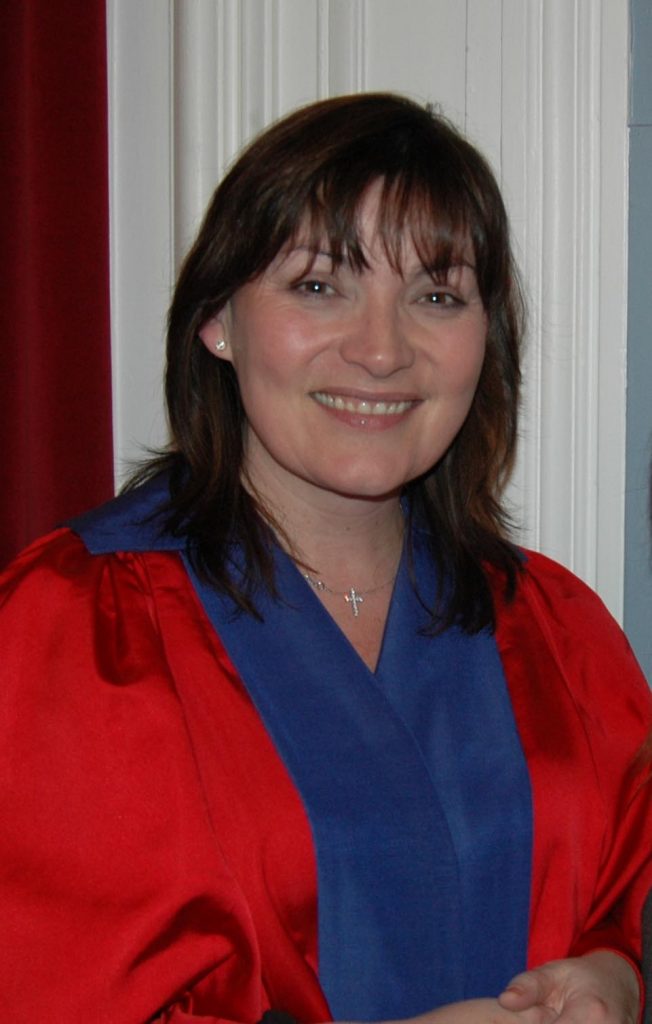
The largest total polled in a rectorial election was the 1,166 votes won by Clement Freud in 1974. Since then only one other candidate has polled more than 1,000 votes in a contest, namely Brian Cox in 2010.
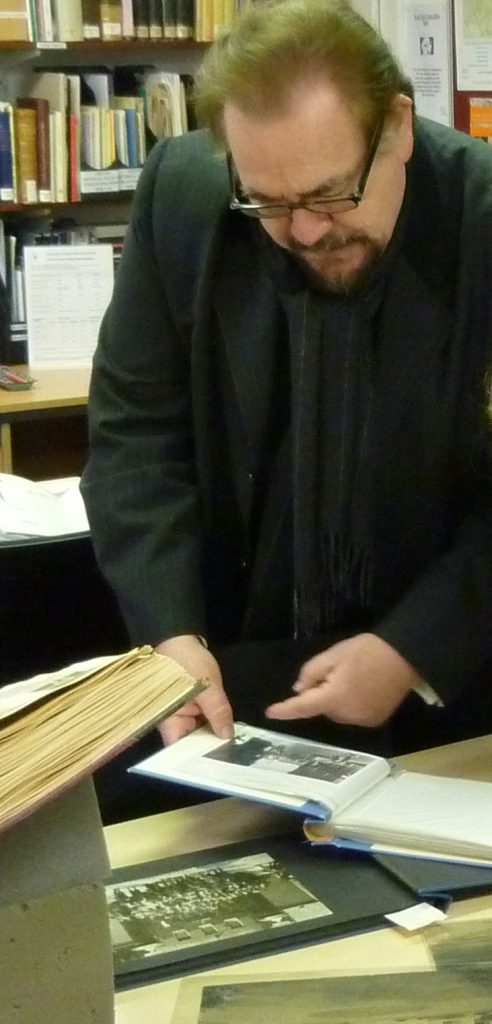
Stephen Fry was probably the most popular Rector of the University to date. The Students Association named a bar The Liar after one of his novels. His inaugural speech is still remembered today and his association with the University continues with the Stephen Fry Award for Public Engagement. His speech can be seen here:
This is the full list of Rectors to date:
1968-1974 Peter Ustinov; 1974-1980 Clement Freud; 1980-1983 George Mackie, Lord Mackie of Benshie; 1983-1986 Gordon Wilson; 1986-1989 Malcolm Bruce; 1989-1992 Paul Henderson Scott; 1992-1998 Stephen Fry; 1998-2001 Tony Slattery; 2001-2004 Fred MacAulay; 2004-2007 Lorraine Kelly; 2007-2010 Craig Murray; 2010-2016 Brian Cox; 2016-2019 Mark Beaumont; 2019-2021 Jim Spence.
